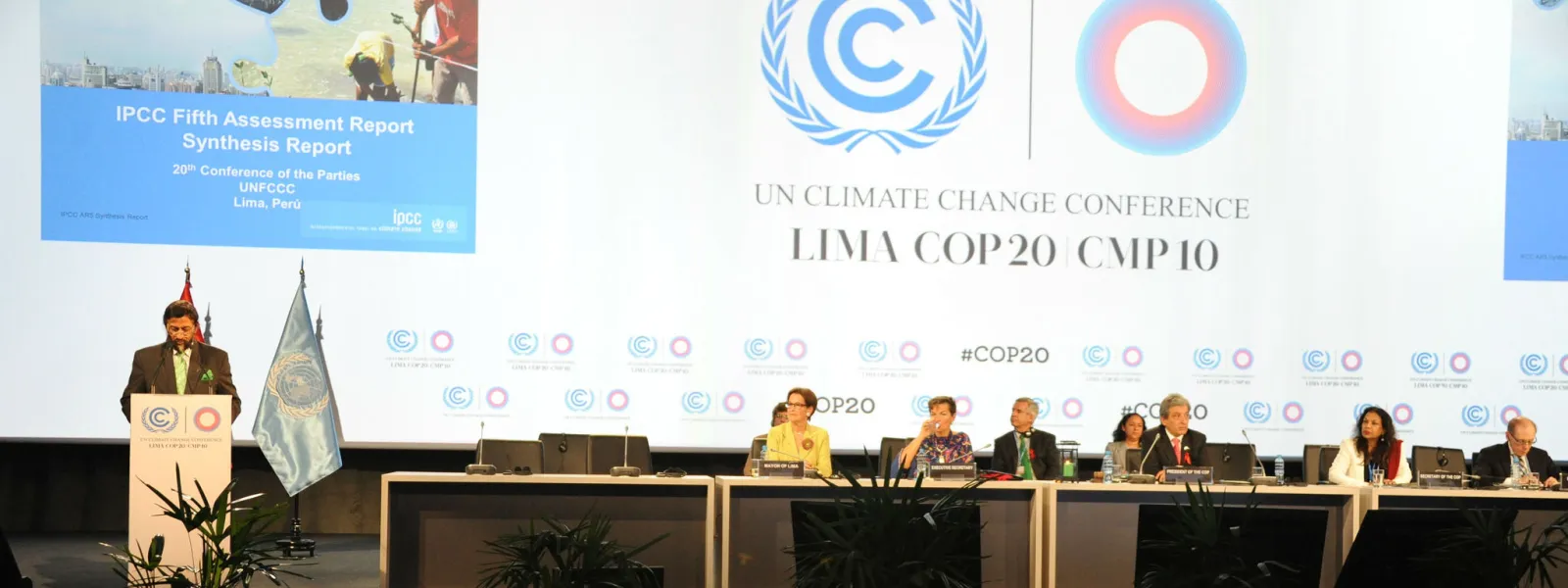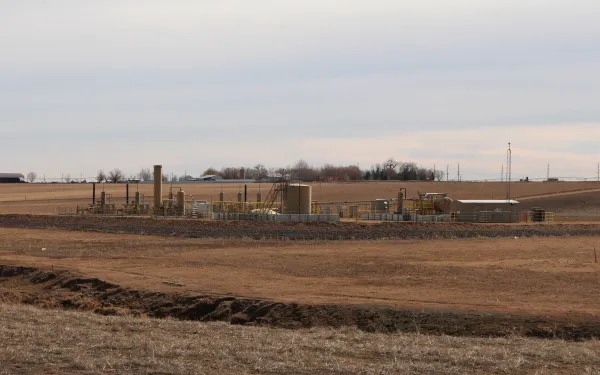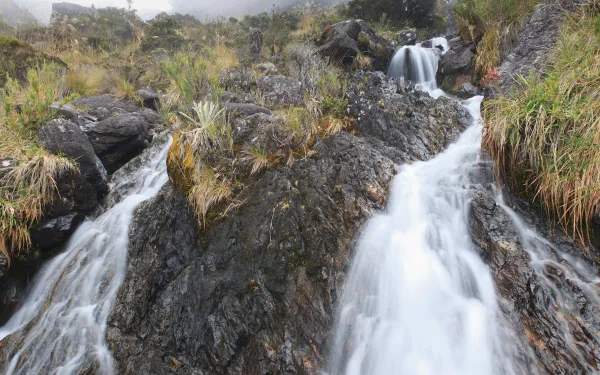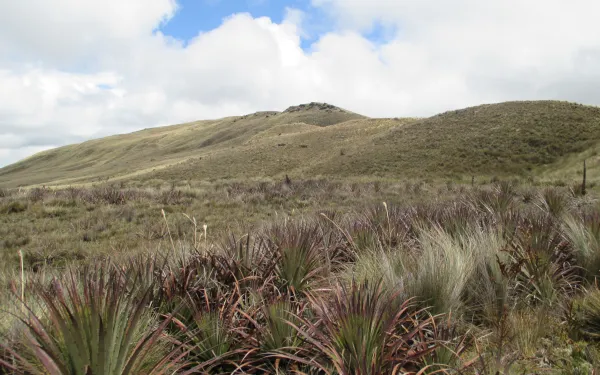
Project
Photo: UNFCCCMonitoring the UN Climate Negotiations
As changes in climate become more extreme, their affects are being hardest felt throughout developing countries. Since 1994, the United Nations Framework Convention on Climate Change has laid out actions to limit the increase of global average temperatures and confront the impacts of climate change.
The States that are Parties to the Convention meet every year in the so-called Conference of the Parties (COP) to review their commitments, the progress made in fulfilling them, and pending challenges in the global fight against the climate crisis.
At COP21 in 2015, they adopted the Paris Agreement, which seeks to strengthen the global response to the climate emergency, establishing a common framework for all countries to work on the basis of their capacities and through the presentation of Nationally Determined Contributions (NDC) that will:
- Limit the increase in global temperatures to 2°C compared to pre-industrial levels and continue efforts to limit it to 1.5°C;
- Increase the capacity of countries to adapt to the impacts of climate change; and
- Ensure that financing responds to the goal of reducing greenhouse gas emissions.
Our focus areas
THE CLIMATE CRISIS AND HUMAN RIGHTS
The climate crisis, due to its transversal character, has repercussions in various fields, geographies, contexts and people. In this regard, the Preamble to the Paris Agreement states that it is the obligation of States to "respect, promote and fulfill their respective obligations on human rights, the right to health, the rights of indigenous peoples, local communities, migrants, children, persons with disabilities and people in vulnerable situations and the right to development, as well as gender equality, the empowerment of women and intergenerational equity."
AIDA at the COP
COP25: Chile-Madrid 2019
At COP25 in Madrid, Spain, we advocated for the inclusion of the human rights perspective in various agenda items. We promoted the incorporation of broad socio-environmental safeguards in the regulation of Article 6 of the Paris Agreement, which refers to carbon markets. We closely followed the adoption of the Gender Action Plan, as well as the Santiago Network, created "to catalyze technical assistance […] in developing countries that are particularly vulnerable to the adverse affects of climate change." We also encouraged the inclusion of ambitious and measurable targets for the reduction of short-lived climate pollutants in the climate commitments of States.
Related projects

The Precautionary Principle: A legal tool against the impacts of fracking
This report analyzes the viability of using the precautionary principle to prevent, avoid or stop fracking operations in Latin America. These measures can result in prohibitions or moratoriums, as has occurred in various states, provinces and cities across America and Europe. Fracking is a technique that enables the exploration of historically inaccessible reservoirs of natural gas or petroleum. Governments and businesses across the world have pushed for the exploration of these reservoirs due to declining global reserves of conventional hydrocarbons, thanks to 150 years of overexploitation. The exploitation of unconventional hydrocarbons is technically more difficult, has a higher economic cost, and implies greater risks to the environment and public health.Promoting fracking to extract unconventional hydrocarbons is a bad decision on climatic, political, social and environmental levels. It deepens our dependence on fossil fuels and wastes energy and resources that should be directed at developing renewable energies.That's why we felt it important to examine the viability of applying the precautionary principle as a legal tool to avoid or slow down the risks and damages caused by fracking, particularly in countries that have begun or are planning to begin fracking in coming years. Read and download the report (in Spanish)
Read more
Organizations condemn Eco Oro’ threat to sue Colombia over efforts to protect páramos
The Canadian company developing the Angostura gold mine in the high-altitude wetlands, or páramo, of Santurbán, has announced that it could file an international arbitration suit against Colombia over measures to protect the páramo, which is an important source of water in the country. Washington/Ottawa/Bogotá/Bucaramanga/Ámsterdam – Civil society organizations condemn Eco Oro Minerals’ announcement that it will initiate international arbitration against the Colombian state. Eco Oro has stated its intention to sue Colombia under the investment chapter of the Canada Colombia Free Trade Agreement over measures that the Andean state has taken to protect the Santurbán páramo and páramos around the country from harmful activities such as large-scale mining. Eco Oro Minerals’ Angostura proposed gold mine in Santurbán has financial backing from the World Bank’s International Finance Corporation. The company argues that it will lose money because of the demarcation of the páramo and the recent decision from the Constitutional Court of Colombia reaffirming the prohibition against mining in all Colombian páramos. The company stated in a news release that it could bring the dispute to international arbitration and seek “monetary compensation for the damages suffered.” “Since the Angostura project got underway, it has been clear that páramos are constitutionally and legally protected and that this project could affect Santurbán, such that it might not be authorized. States should not be sanctioned for protecting their water sources, given that they are doing so in accordance with national and internacional obligations,” remarked Carlos Lozano Acosta from the Interamerican Association for Environmental Defense (AIDA). The páramos are the source of 70% of the fresh water that is consumed in Colombia and are essential for mitigating climate change. The proposed gold mine was already the subject of a complaint to the Compliance Advisor Ombudsman of the International Finance Corporation (IFC). The Committee in Defense of the Water and Páramo of Santurbán filed the complaint in 2012. The IFC is the part of the World Bank Group exclusively focused on the private sector. A report based on this investigation is expected in the coming months. “The implication and the irony of Eco Oro’s statement is that the IFC’s investment in the company could be used to litigate against member states of the World Bank. It’s time for the IFC to withdraw its investment from this company,” stated Carla García Zendejas from CIEL. “In 2011, the Colombian Ministry of the Environment denied an environmental permit for the Angostura project, demonstrating its inviability. The Constitutional Court’s decision reaffirmed this, finding that the right to water and the protection of the páramos takes precedent over the economic interests of companies trying to develop mining projects in these ecosystems,” commented Miguel Ramos from the Santurbán Committee. “Just as has we have seen in El Salvador, where the state is being sued for US$250 million for not having granted a Canadian company a mining permit when the company did not even fulfill local regulations, the international arbitration system enshrined in neoliberal investment agreements is a real threat to the sovereignty of states and peoples to decide over highly important issues, such as water,” said Jen Moore from MiningWatch Canada. The organizations call on the company to abstain from arbitration against the Colombian state and note the risk that other companies with projects in the Santurbán páramo could follow Eco Oro’s example. Find additional information here.
Read more
Facts on Financing the Climate Fight
The impacts of climate change are already being felt by many millions of people and communities around the world – but the burden weighs most heavily on the poor and marginalised in developing countries. That’s why 195 countries came together to create the Green Climate Fund (GCF) under the United Nations Framework Convention on Climate Change (UNFCCC). The GCF is expected to play a central role in financing efforts to combat climate change » (mitigation) and to help developing countries cope with its effects (adaptation). LEARN MORE ABOUT IT:
Read more